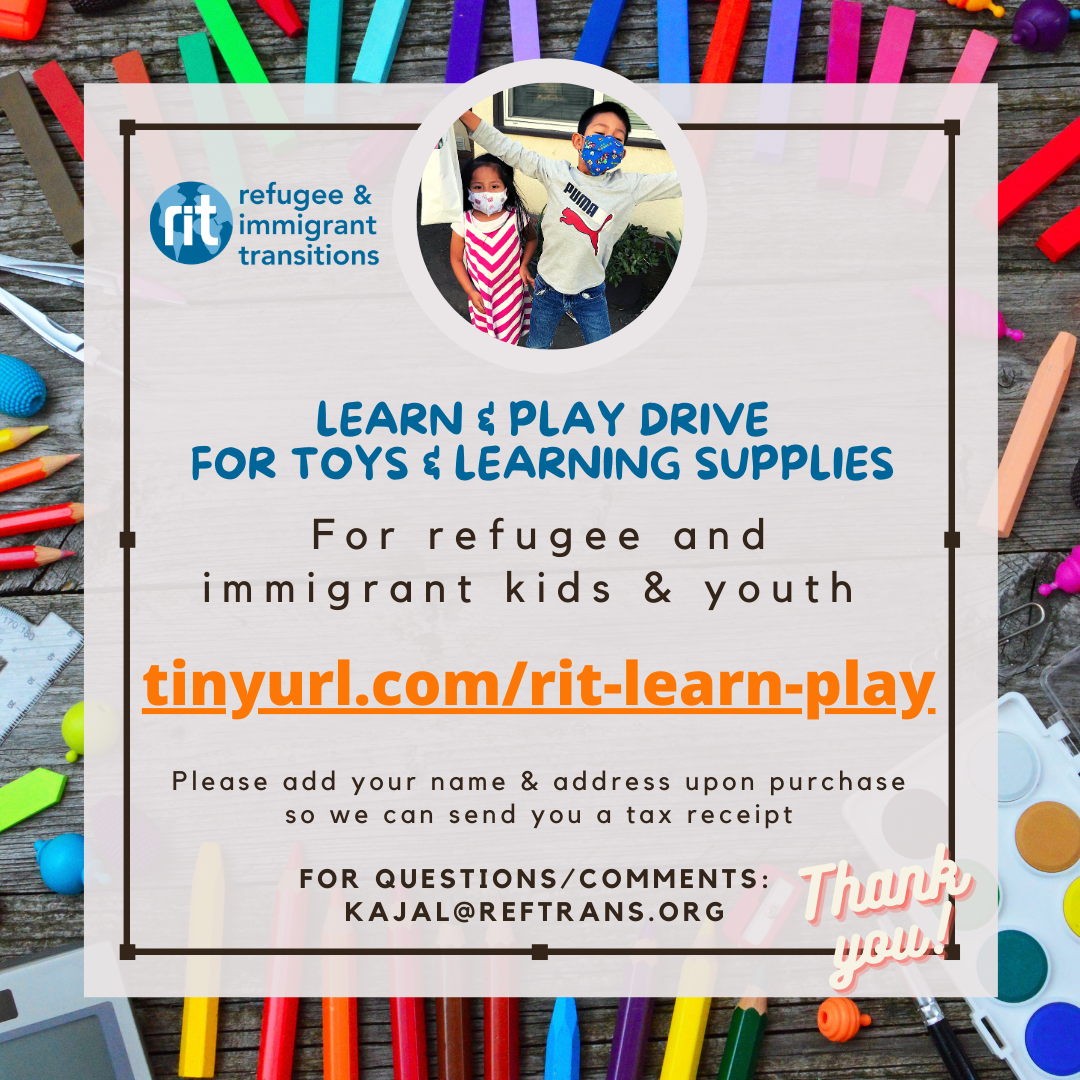March 23, 2021 - All of us at Refugee & Immigrant Transitions are appalled and heartbroken by the horrific violence and scapegoating of Asians, Asian Americans, and Pacific Islanders during covid. We are reaching out to and showing support for our AAPI friends, colleagues, and neighbors. This Friday, March 26th is the Asian American National Day of Action and Healing - please join!
According to Human Rights Watch, "statistics show a 150 percent surge in anti-Asian hate crimes since the start of the pandemic. People of Asian descent are at greater risk of violence and racism than they were a year ago and many live in fear." We need to come together to dismantle xenophobic and white supremacy thinking, and ensure that everyone in our communities, including elders, women, and LGBTQ+ individuals are safe and welcome.
Compounding this, many of our refugee and immigrant community members are fearful about the safety of family members and friends in their countries of origin. Last month, the military in Burma (Myanmar) violently took power in that country, deposing democratically elected leaders. Since then, it has been brutally cracking down on protesters. People from Burma in diaspora in the Bay Area and around the world have been tirelessly demonstrating in solidarity with the democracy movement in Burma.
To all our AAPI community members, we’re sending our solidarity, love and support.
Refugee & Immigrant Transitions was founded in 1982 to help refugees from Southeast Asia adjust to their new lives in the U.S. Since then, we have partnered with thousands of AAPI refugees and immigrants to support them on their pathways to education, employment, and citizenship. We are fortunate to hire and recruit staff, board members, and community leaders from diverse AAPI communities. We also closely collaborate with grassroots AAPI community organizations and leaders. AAPI communities are our communities.
Here are some action steps:
Support your local AAPI-owned small businesses
Support & Action Items: Korean Community Center of the East Bay
Bystander Intervention Training to stop Anti-Asian/American and Xenophobic Harassment
Post on social media on March 26th with hashtag #StopAsianHate (view toolkit here)
Join us in sending love and solidarity to our AAPI communities.
RIT Family

























![[Pictured: highest admissions ceilings of previous Administrations]](https://images.squarespace-cdn.com/content/v1/5032cfc0e4b00d577d18b5e8/1569626134972-7QPF1YMCPODMSWBN9MER/image-asset.jpeg)



![[left to right: Laura Vaudreuil and Jane Pak]](https://images.squarespace-cdn.com/content/v1/5032cfc0e4b00d577d18b5e8/1569526338017-ZONEOTUQ53PXVR5FW5FC/jane%2Band%2Blaura.jpg)






